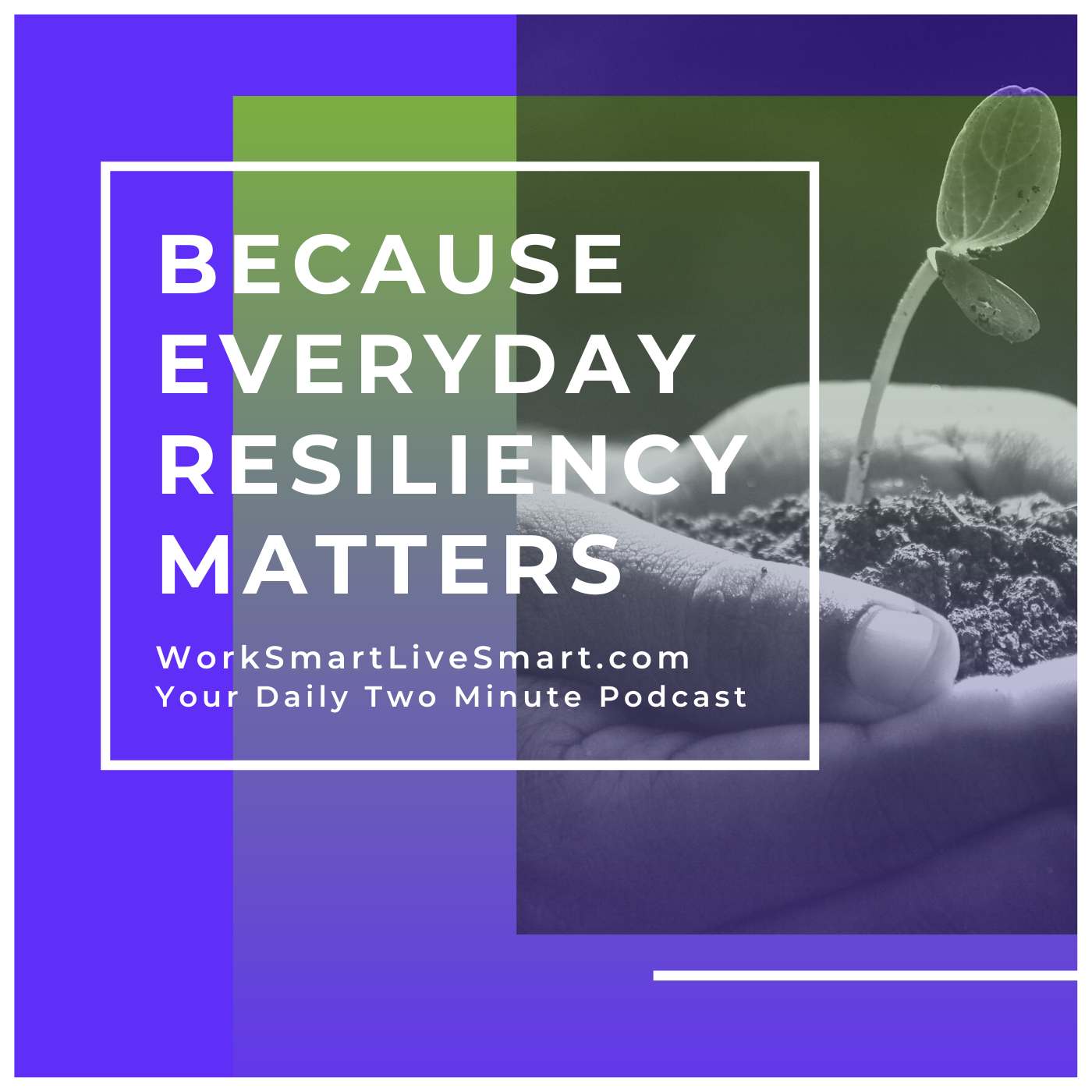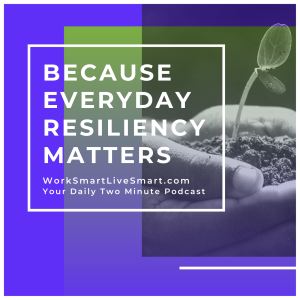

86.3K
Downloads
2289
Episodes
Hope, Health, and Happiness. Would you like to live your life with less stress and more happiness? Discover how to take small steps towards a healthier, happier, more resilient you. Stress is a powerful force in life. It can bring about illness, destroy relationships and cause chaos. There is not a one-size-fits-all coping strategy for dealing with stress. Our goal is to put a plan together that helps us to deal with the sources of stress, take care of ourselves during those stressful times, and allows us to reach out to those around us for support. The Work Smart Live Smart flash briefing focuses on helping you to Harness Your Energy, Build Your Resiliency and Protect Your Mental Health!
Episodes

Tuesday Nov 22, 2022
EP 1523 - Watching Our Language
Tuesday Nov 22, 2022
Tuesday Nov 22, 2022
Sadly, one in 10 Canadians suffers from some type of substance use disorder. That could mean your colleague, your neighbour or someone in your own family. Addiction does not discriminate—it affects all walks of life.
The total societal cost of substance abuse is in the billions. Whether the cost comes from lost productivity in the workplace, increased cost to our healthcare system or pressure on our law enforcement agencies, substance use disorders cost money.
People are dying. Substance use disorders can be progressive and fatal if left untreated.
Take One Action Today To Build Your #Resiliency!
So Here Are Today’s Tips For Building Your Resiliency And Celebrating National Addiction Awareness Week:
Choose to recognize that substance use disorders are health disorders. They are not the result of any kind of character flaw or lack of personal willpower. In fact, substance use disorders are the most common mental health disorder.
Stigmatizing language can perpetuate harmful stereotypes and act as a barrier to seeking help and sustaining recovery. The truth is … WORDS MATTER.
Watch the language that you use. Here are some ways to avoid using language that stigmatizes substance use and addiction:
Use “people-first language.” For instance, refer to “person who uses substances”, rather than a “drug user”, “addict” or “alcoholic”. This is more neutral language that helps to maintain the individuality of the person.
Choose language that promotes the recovery process. This means not describing a person being “clean” or “dirty” but rather “not currently using substances” or “in recovery”.
For more information on coping with mental health issues, sign up for one of my on-line courses at worksmartlivesmart.com under the Resources And Courses tab.
#mentalhealth #hr
Comments (0)
To leave or reply to comments, please download free Podbean or
No Comments
To leave or reply to comments,
please download free Podbean App.